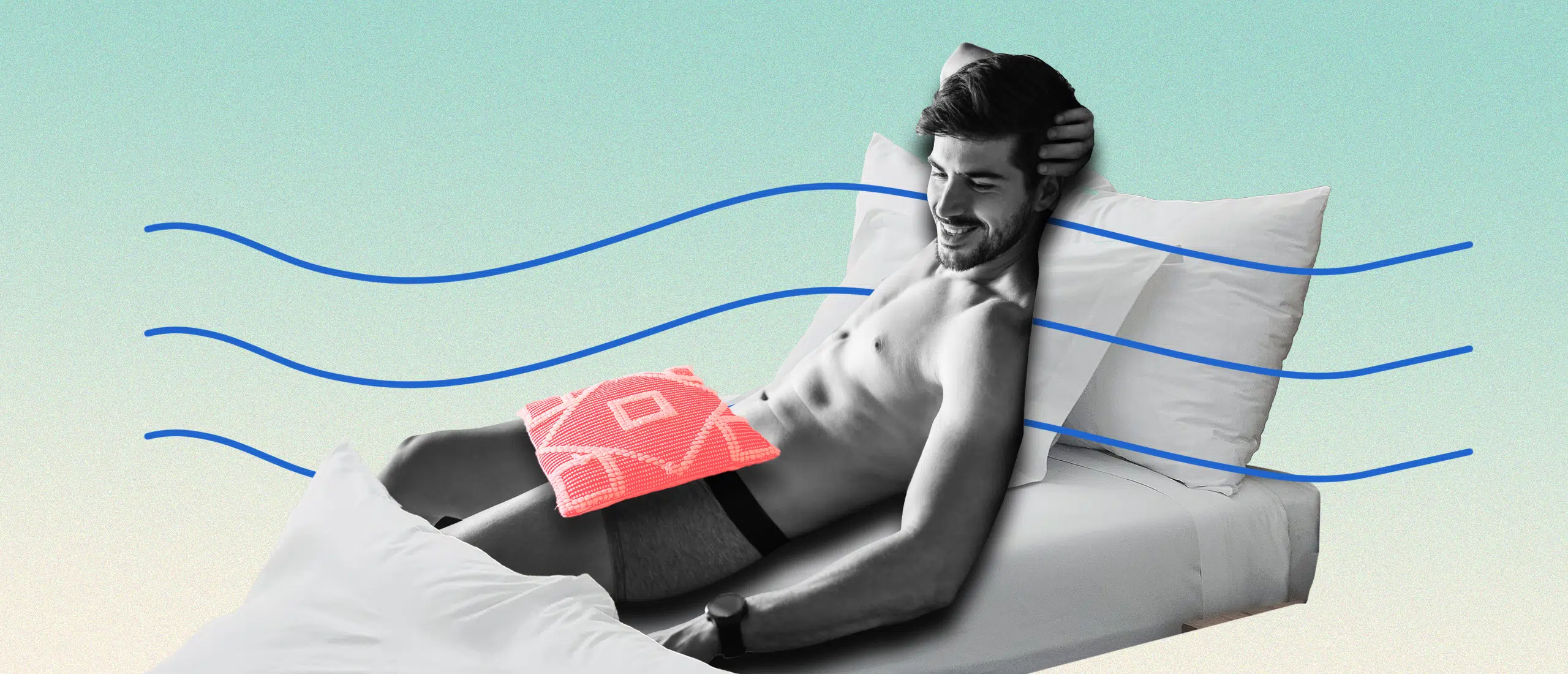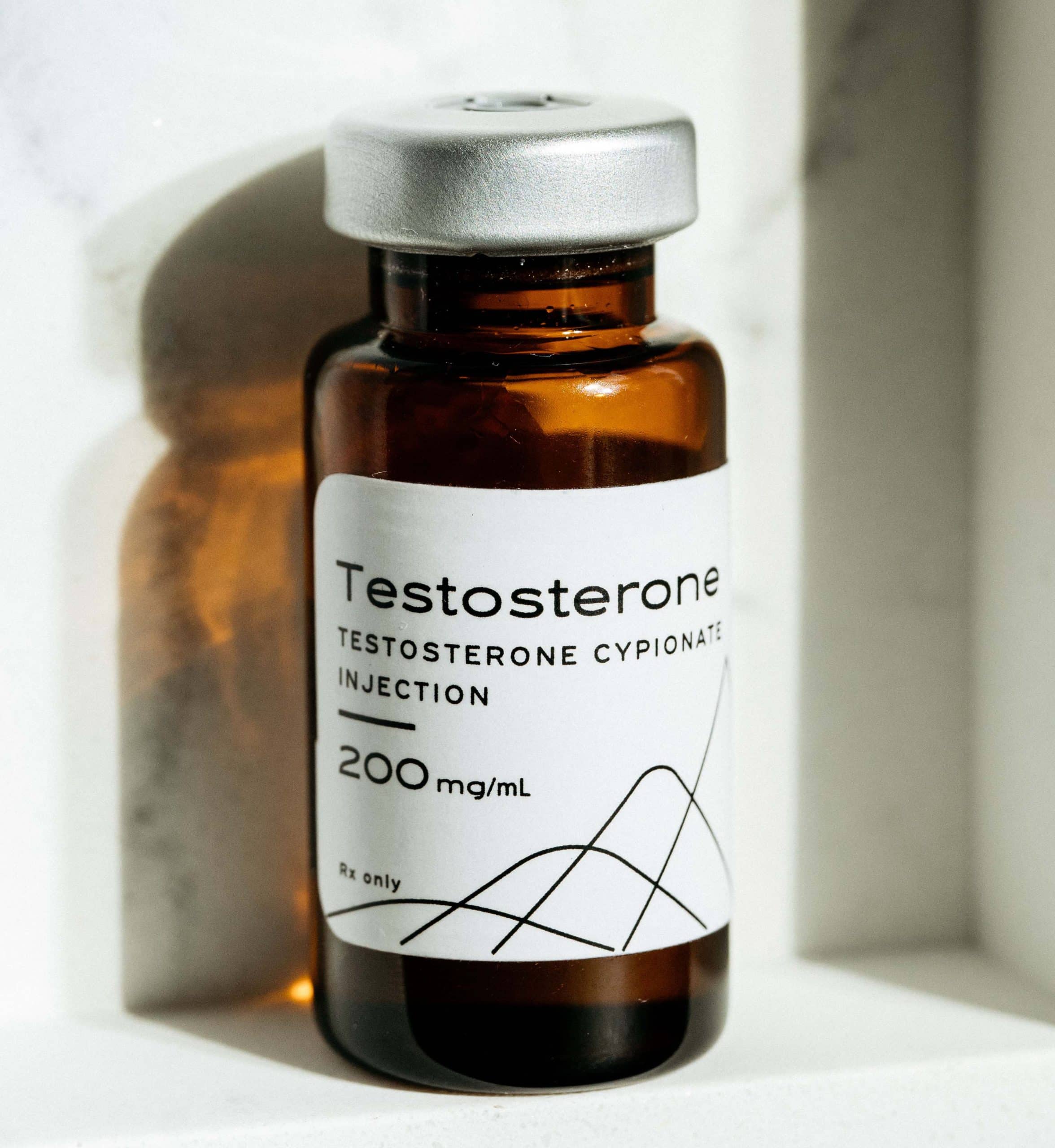How to Increase Penis Sensitivity, According to a Urologist
30-Second Takeaway
- Factors like age, masturbation technique, low testosterone, and medication can decrease penis sensitivity.
- Optimizing your health and experimenting with erogenous zones can boost sexual satisfaction.
From the number of sexual accessory brands selling numbing lube and icy-hot condoms to keep overly reactive penises harder for longer, you’d think that having slightly dulled sensitivity in your penis isn’t a bad thing.
But minimized penis sensitivity is a spectrum: some guys may feel a slight lack of sensation, while men with severe cases might not feel anything at all. Decreased penis sensitivity becomes a problem when it starts to impact how much you’re enjoying sex.
“While you may still be able to achieve and maintain an erection [hard enough] for penetration, the lack of sensation can make it challenging to sustain both arousal and that erection,” urologist Amy Pearlman, M.D., says. “It’s like driving a high-performance car but not being able to feel the road—it takes away from the full experience.”
Penis sensitivity naturally varies from person to person and depends on the amount of nerves—and the level of nerve function—on and around the head of the penis (1).
These are the most common culprits for why your penis has suddenly lost sensation, according to Pearlman.
About the Expert:
Dr. Amy Pearlman is a urologic surgeon with a specialization in genital and urinary reconstruction, as well as male-specific quality of life concerns. She offers medical and surgical therapies for erectile dysfunction, penile curvature, testosterone deficiency, and genital reconstruction.
Sensitivity Killer: Masturbation
Masturbating has loads (no pun intended) of health benefits for men, like improving sleep and releasing feel-good hormones called endorphins (2, 3). But self-pleasuring too frequently or too vigorously may dull feeling during sex.
The controversial term “death grip syndrome” has popped up on the internet to describe the effects of vigorously masturbating, like reduced sensation, suspected nerve damage, and difficulty finishing during sex.
While this isn’t a real diagnosis, research shows that this theory isn’t too far off base. A 2018 review found that “vigorous masturbating styles” were linked to a delayed or straight up inability to ejaculate during sex (4).
Sensitivity Killer: Age
A degree of decreased sensitivity and even some penile numbness is normal as you age.
Nerve response also nose dives as you age as brain and spinal cells atrophy (5), potentially dulling the connection between your big head and your little head.
Sensitivity Killer: Low Testosterone
As you rack up years, your testosterone levels will naturally dip. While this decline won’t directly cause you to lose sensitivity, low T is associated with erectile dysfunction and less response to arousal, which can lead to less sensation during sex.
Test your hormones
If you’re experiencing debilitating symptoms like low energy, lack of libido, erectile dysfunction, or irritability, you might want to test your hormones. You can skip the wait at your GP’s office by taking Hone’s at-home hormone assessment.
Hone’s at-home testosterone assessment is the simplest way to uncover whether your levels are low. If you qualify for treatment, TRT can be sent right to your door.
Sensitivity Killer: Antidepressants
Selective serotonin reuptake inhibitors (SSRIs)—a class of medications commonly prescribed for anxiety, PTSD, or depression—can cause numbness. A citizen’s petition published in the International Journal of Risk & Safety in Medicine notes that SSRI use was linked to significantly lower penis sensitivity (6). Serotonin plays a role in regulating mood—which is why it’s so effective in treating depression and anxiety—but it also modulates sexual function (7).
SSRIs increase the amount of serotonin (a type of neurotransmitter) in the brain. If your serotonin levels spike, you may have less sensitivity, and it may take longer for you to ejaculate.
Audit your medications
If your regime is seriously impacting your sex life, Pearlman suggests talking to your doctor to discuss alternatives.
While antidepressant side effects vary from person to person, the Mayo Clinic notes that Bupropion, Mirtazapine, Vilazodone, and Vortioxetine have the lowest rates of sexual side effects.
Sensitivity Killer: Diabetes
A loss of penis sensitivity can be a symptom of an undiagnosed medical condition including diabetes.
A whopping 13 percent of American men have been diagnosed with diabetes—according to the CDC—caused in part by diets packed with processed foods, inactivity, and environmental factors.
The prolonged high blood sugar levels which are a hallmark of diabetes can harm your blood vessels and nerves, says Pearlman. Including those in your lieutenant. “Any disease process that may impact nerves, may also impact penile sensitivity.” This damage can result in reduced sensation, dulling sensation and making it harder to maintain an erection. Worse yet, once the damage occurs it can be difficult to reverse.
Optimize your health
“Managing conditions like diabetes that can have a profound impact on your sexual function,” Pearlman suggests. “A well-balanced diet, regular physical activity, and appropriate pharmacotherapy are not just good for your blood sugar levels; they’re also instrumental in enhancing your sexual wellbeing.”
Sensitivity Killer: Cardiovascular Disease
Maintaining cardiovascular health is crucial for maintaining adequate blood flow in the body—especially to your nether regions. Conditions like high blood pressure can restrict blood flow to the penis, which may lead to reduced sensitivity.
Exercising regularly, eating more fiber-dense fruits and vegetables, and limiting processed foods and alcohol are just a few ways to optimize your cardiovascular wellbeing, according to the American Heart Association.
Sensitivity Killer: Surgery
Penis surgery—such as procedures for enlargement or lengthening, ED, or Peyronie’s disease—can impact your sensitivity.
“There is a risk of diminished penile sensitivity, particularly when the surgery is performed in close proximity to the nerves that provide sensation to the penis,” Pearlman explains.
Surgeons aim to preserve nerve function and sensation—so this side effect is relatively rare. However, if you’re considering penis surgery, talk to your doctor if sensation loss is a major concern.
How to Increase Penis Sensitivity
A couple changes in the bedroom could boost your sensitivity. Pearlman suggests the following:
Try sex toys
If you find that au naturel, partnered sex isn’t cutting it, Pearlman recommends experimenting with sex toys (like vibrators or cock rings) to make things interesting.
“Don’t underestimate the potential of sex toys in enhancing tactile sensations,” Pearlman says. “Various vibrational settings can offer a new dimension to your sexual experience, potentially improving sensitivity and satisfaction.”
However, if your lack of sensation is caused by nerve damage, you may find that sex toys don’t increase stimulation to your penis.
Stimulate other erotic zones
If your penis is out of commission due to nerve damage, that doesn’t mean your sex life is over.
“Sexual pleasure isn’t confined to genitalia,” Pearlman says. “Exploring erogenous zones like the nipples, perineum, and even the prostate through targeted stimulation can contribute to a more fulfilling sexual experience.”
References
1. Ruesink, et al (2022). A psychophysical and neuroimaging analysis of genital hedonic sensation in men.
2. Oesterling, et al (2023). The influence of sexual activity on sleep: A diary study.
3. Isenmann, et al (2021). Hormonal response after masturbation in young healthy men – a randomized controlled cross-over pilot study.
4. Abdel, et al (2018). Delayed Ejaculation: Pathophysiology, Diagnosis, and Treatment.
5. MedlinePlus. Aging changes in the nervous system.
6. Healy, et al (2018). Citizen petition: Sexual side effects of SSRIs and SNRIs.
7. Graf, et al (2019). Serotonergic, Dopaminergic, and Noradrenergic Modulation of Erotic Stimulus Processing in the Male Human Brain.















